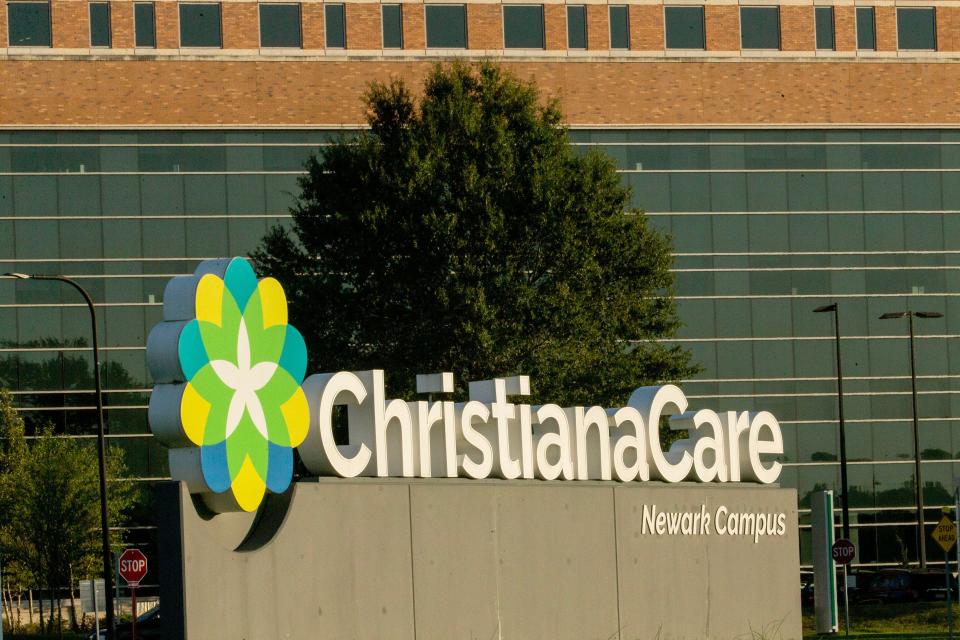Hospital review board, health care provider tax among proposals to reign in Delaware costs
A flurry of bills introduced in the last week aim to tackle Delaware’s rising health care costs in both the public and private sector.
The most sweeping bills include one introduced by state Sen. Sarah McBride that would place a tax on some health care providers to generate more than $100 million in new Medicaid funding as well as a bill proposed by House Speaker Valerie Longhurst that would create a hospital cost review board.
McBride, who announced plans for the new assessment on acute care and behavioral health care providers on Monday, said the “collaborative partnership” proposed with the bill would “dramatically improve health coverage without increasing the tax burden for the average Delawarean or shifting money away from existing programs.”

Forty-one other states have a similar assessment in place, helping boost their share of federal Medicaid matching funds, according to KFF – a nonpartisan source for health policy research, polling and journalism.
Meanwhile, the House speaker’s bill, which is co-sponsored by Senate Majority Leader Bryan Townsend, would create a board that would make sure any changes to hospital budgets align with Delaware’s health spending benchmarks and the health care needs of residents.
BACKGROUND: The 5 takeaways from Delaware Gov. John Carney's 2025 budget address
Longhurst said they’ve seen “concerning spikes in healthcare costs” in recent years, which “pose a serious threat” to the state budget as well as the health of residents.
“Establishing this review board is a critical step to managing the rise in healthcare spending, ensuring we strike a balance that controls costs while guaranteeing quality healthcare for Delawareans,” she said.
A hospital review board
Delaware often falls among the nation's most expensive states for health care.
A recent Forbes Advisor article ranked the First State 17th in costly health care, and state Gov. John Carney’s proposed 2025 budget underscored Delaware’s ballooning health care costs. Carney included an additional $200 million to cover the state’s share of a proposed 27% premium hike on state employee health insurance.
RELATED: Why Delaware is eying a 27% premium hike on state employees' health insurance
Under Longhurst’s proposed legislation, hospitals would be required to submit their proposed budgets and financial and utilization information to the Diamond State Hospital Cost Review Board on an annual basis.
Beginning in 2026, the board would review and approve hospitals’ budgets, using the state’s health care spending benchmarks as a guide, along with the financial health of each hospital and other economic factors, according to a news release from Longhurst announcing House Bill 350.
Prior to the board beginning operations, hospitals would be “prohibited from charging more than 250% of Medicare costs to any payer for hospital services in 2025.”
The board would include five members appointed by the governor and General Assembly who have knowledge of health care policy and delivery, or business, finance or accounting expertise.
“Right now, Delaware is in the top five of states in terms of health care costs and in the bottom half when it comes to health care results,” Townsend said in a news release. “Just as utilities operating in Delaware are required to justify hikes in water, electric and cable rates, our hospital systems also should be held accountable for the fees they charge and the outcomes they produce.”
Increasing Medicaid funds
Senate Bill 13, cosponsored by House Majority Whip Kerri Evelyn Harris, would phase in a new 3.58% tax on the “net patient revenues of Delaware’s acute-care and behavioral health hospitals,” which in turn would generate over $100 million in new Medicaid funding between the facility assessment and federal matching funds.

The majority of states in the nation have at least one facility assessment in place, and use the “provider tax” as a way to boost the amount of state funding available to Medicaid, which is then used to generate more in federal match payments. Other states have used these assessments to increase provider rates, mitigate rate cuts or expand eligibility to more parents and children.
Medicaid is a health insurance program primarily for low-income families and people with disabilities, which is jointly funded by the state and federal governments. On average, every $2 invested in Medicaid by the state is matched with $3 by the federal government, according to a news release announcing the bill.
Nearly 1 in 3 Delawareans receive acute and long-term health care through Medicaid.
The assessment would hold “taxed hospitals” harmless, allowing for most of the money collected to be returned to health care providers in “lump-sum payments.”
The bill has already garnered some support from health care providers, including ChristianaCare, which is Delaware’s largest health care provider and private employer.
“This historic agreement represents a major step forward in protecting our state’s Medicaid program, expanding access, and improving health outcomes here in Delaware,” said Dr. Janice Nevin, CEO of ChristianaCare, in a news release. “Through the investment by our state’s hospitals, we join neighboring states in unlocking critical federal resources for Delaware’s patients and providers alike.”
The health care assessment isn’t new to Delaware. Its first facility assessment was signed into law in 2013 and collects revenues from nursing facilities.
Additional health care-related bills
House Bill 346, sponsored by Rep. DeShanna Neal, would expand a current bill to provide the same legal protections as reproductive care providers to providers of gender-affirming health care.
House bills 281 and 282, sponsored by Rep. Paul Baumbach and first introduced in January, would prohibit the state from considering Medicare Advantage plans for state retirees and make several changes to the State Employee Benefits Committee – which manages state employee and retiree benefits coverage.
This article originally appeared on Delaware News Journal: How Delaware lawmakers want to reign in health care costs

